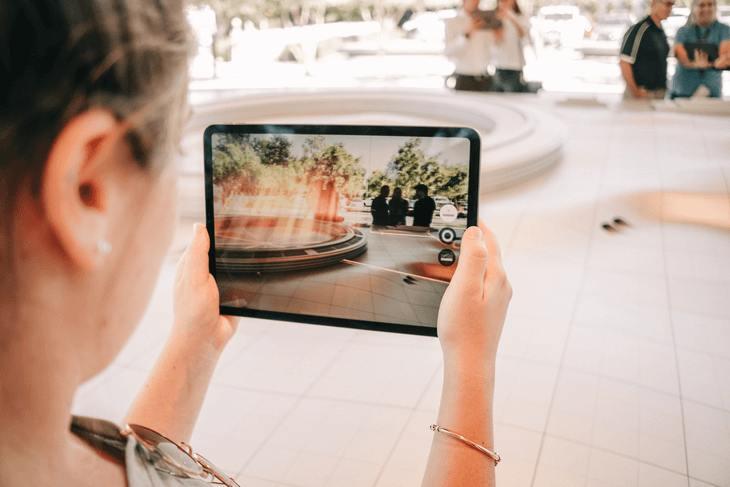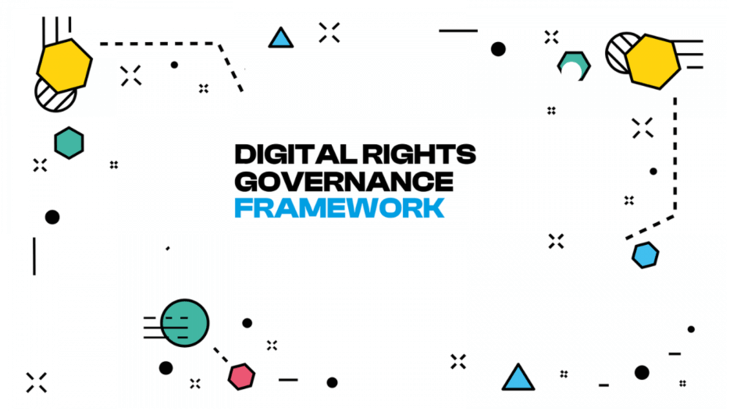What does it mean that our cities are becoming ‘smart’? There are many competing definitions for the term ‘smart city’, but they all agree that information and communication technology (ICT) is central to improving the quality and performance of public services. Smart and sustainable cities depend upon appropriate technology that is designed and integrated through partnerships with government, civil society, academia and the private sector. Technology also plays a significant role in achieving the Sustainable Development Goals (SDGs) as articulated in the 2030 Agenda. While digital technologies have the potential to change our cities for the better, they are also capable of deepening social and spatial differences, however.
In the essay “A human rights-based digital transformation”, author Paula Boet builds on the work carried out by the Cities Coalition for Digital Rights and outlines both challenges and opportunities associated with use of digital technology in cities and calls for the need of digital rights based policy-making.
Paula Boet is the Communications and Project Manager of the Cities Coalition for Digital Rights and Project Manager at Barcelona City Council-BIT Habitat Foundation, working on projects related to digital rights, AI Ethics, and digital inclusion.

© Josh Withers / Unsplash
Digital technology is transforming every area of society at a rapid pace. Across cities and metropolitan spaces, digital disruption has sped up significantly due to a higher concentration of people, economic activities, services, and social and cultural interactions, and it is reshaping day-to-day life in many ways. The effects of digital technology on urban environments include cities becoming hubs for data production, service provision being increasingly automated, new models of participation and engagement emerging for city dwellers, and new technological solutions being tested and deployed. Digital disruption offers many opportunities, but also brings about many risks related to human rights violations and increased inequality, which can have harmful effects on individuals and communities if the necessary policies and governance mechanisms are not put in place.
The use of digital technology in cities can have a wide variety of negative impacts. Nowadays, not being connected to the internet, or not having the right device or skills to do so, means not having access to other fundamental human rights, such as education or employment.
The digital divide adds to pre-existing social, geographical, and gender inequalities, and results in new forms of exclusion and discrimination.
Moreover, the pre-eminence of digital technology has also brought about threats to privacy rights, due to the collection, tracking, and use of personal data used to analyse, predict and target individuals and communities. Other risks brought about by digital disruption relate to the fact that Artificial Intelligence (AI) or automated decision-making systems can automate inequalities and discrimination, especially when they are introduced in sensitive areas such as basic social protection. Such systems can decrease transparency, accountability, and public trust, and can make it more difficult to resolve errors caused by computer systems. These are just a few of the risks associated with the deployment of digital technologies in cities. Due to the fast-evolving pace of digital innovation, it is likely that such issues will multiply over the next few years, which calls for city leadership to drive digital transformation forward in an inclusive and people-centred way.
Enhancing city capacity to govern the digital disruption: towards a Digital Rights Governance Framework
The rapid growth and reach of digital technologies have made it difficult for local governments to ensure the right policies and measures are in place to govern them. The policy and governance approach to digital rights has been rather fragmented, as local governments place an emphasis on different areas of city digitalisation, and often lack a comprehensive approach. Moreover, the concept of digital rights is relatively new and still evolving, open to various interpretations and lacking a clear normative ground. Therefore, we need to define a digital rights policy model in order to advance governance on such topics and expand the capacities of metropolitan areas.
Cities are the closest democratic institutions to inhabitants and employ technological solutions directly. City administrations need to be prepared and equipped to lead digital transformation strategies that are people-centred and support sustainable urbanisation towards the public good.
We need enhanced models of governance to manage the opportunities and risks driven by technology and ensure that digital rights—which are ultimately human rights in the digital space—are protected and promoted.
We need to put the perspective of dwellers at the forefront, as such a governance model can only work if people are aware of what their ‘digital human rights’ are when interacting with the city.

With the ultimate goal of ensuring that human rights in the digital space are given the same consideration as universal human rights, the Cities Coalition for Digital Rights, together with UN-Habitat, UCLG, and Eurocities, in partnership with Open Society Foundations, are developing a Digital Rights Governance Framework: a normative yet pragmatic framework for the city-wide implementation of digital rights, which sets out the foundations, structures and tools that cities put in place to ensure digital rights in cities are protected and promoted.
The Framework sets out foundations to support cities in complying with the full range of human and fundamental rights in the digital environment, and includes commitments to existing human rights and technology frameworks, and guidelines for cities to develop their own. Commitments can be embedded in digital transformation strategies through digital policies, a bill of digital rights, charters, or political statements.
The structures comprise mechanisms and bodies to integrate commitments into the City’s normative and operational work. Such structures may include the creation of a digital human rights officer role, external advisory councils, processes for community engagement and input from residents.
The tools include methods and resources aimed at the implementation and mainstreaming of human rights in various aspects of a City’s digitalisation strategy.
The Framework breaks down the tools that can be implemented across each area of digital rights in order to take a comprehensive approach to this broad scope. The areas covered are: Digital Inclusion, Equality & Equity; Freedom, Autonomy, Control and Self-determination; Transparency and Accountability; Public engagement and Community Participation; Privacy, Safety, Security and Protection; Capacity Building; Procurement and Public Goods and Open Infrastructures. Examples of these tools would be an algorithm registry, introducing privacy-by-design and de-identification in data management, or creating public consultation opportunities for civil society.

© Jezael Melgoza / Unsplash
The Digital Rights Governance Framework has been co-created alongside experts and stakeholders, gathering as much input and as many perspectives as possible. Throughout the second half of 2022, it will be implemented in some European cities, including Brussels (Belgium), and the Sofia Municipality (Bulgaria). These cities will receive tailored support from digital rights experts to address digital rights challenges in a practical manner and work towards a city-wide implementation of human rights in the provision of digital services.
The lessons learned and toolkits created during the pilot projects will be available for other cities in a Digital Rights Helpdesk. The platform will feature a repository of digital rights resources that will also include on-demand expert support and will be launched later in the year. Ultimately, the examples provided by these cities will serve other cities and metropolitan areas that advocate a people-focused digital transformation and want to take practical steps to make digital human rights a reality.
Further readings:
● Digital Rights Governance Framework: https://citiesfordigitalrights.org/sites/default/files/DIGITAL%20RIGHTS%20FRAMEWORK_CONCEPT%20FOR%20FEEDBACK.pdf
● ” When billboards stare back: how cities can reclaim the digital public space” https://www.nesta.org.uk/report/when-billboards-stare-back-how-cities-can-reclaim-the-digital-public-space/
● “Exploring the Rabbit Hole of Digital Rights” https://citiesfordigitalrights.org/sites/default/files/Exploring%20the%20Rabbit%20Hole%20of%20Digital%20Rights.PDF
● UN Habitat’s People Centred Smart Cities Playbooks https://unhabitat.org/programme/people-centered-smart-cities/people-centered-smart-cities-playbooks
● Democratic Society & Cities Coalition for Digital Rights (2021) Citizen’s Voices for Digital Rights https://www.demsoc.org/blog/launch-of-the-citizen-voices-for-digital-rights-cvdr-report
● Global Observatory of Urban AI (2021) AI Ethics in Policy and action: City governance of algorithmic decision systems. https://dossiers.cidob.org/cities-in-times-of-pandemics/assets/pdf/Ai_ethics_in_policy_and_action.pdf
This essay is an adaptation of an article originally published on the Metropolis blog on 24 April 2022.